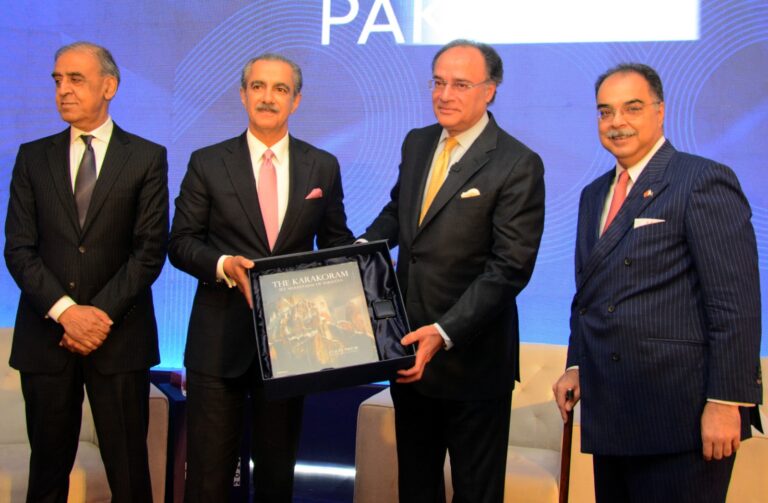Islamabad, Feb 24: Federal Finance Minister Senator Muhammad Aurangzeb reaffirmed the government’s commitment to structural reforms, emphasizing the need for an export-driven economy to ensure sustainable growth. Speaking at the inaugural session of the Pakistan Banking Summit 2025, he stressed that all sectors must contribute toward strengthening Pakistan’s economic resilience. The summit, organized by the Pakistan Banks Association (PBA), aims to foster industry collaboration and enhance integration into the global financial system.
Aurangzeb highlighted the government’s tough but necessary economic decisions, which have led to significant macroeconomic improvements, including a stabilized current account, reduced inflation, and a bullish stock market. He elaborated on an ambitious reform agenda focused on restructuring the Federal Board of Revenue (FBR), promoting fiscal prudence, and rightsizing public sector entities. The finance minister also underscored ongoing efforts to refine tax policy by incorporating economic impact assessments rather than relying solely on numerical calculations.
Vowing to push forward with the reform agenda despite challenges, Aurangzeb stated that Pakistan must fundamentally transform its economic framework for long-term, inclusive growth. He expressed confidence in investor sentiment but cautioned that sustainability and resilience were essential to prevent economic volatility. Among the government’s key priorities is the privatization of Pakistan International Airlines (PIA), with a cabinet committee actively reviewing measures to reduce federal expenditures through phased rightsizing.
Addressing major national challenges, the finance minister pointed to rapid population growth and climate change as significant threats to economic stability. He announced Pakistan’s ongoing efforts to establish a ten-year partnership with the World Bank, focusing on key areas such as demographic management, climate resilience, and fiscal discipline. To make policymaking more inclusive, the government has initiated early consultations on the national budget, inviting business and industrial stakeholders to contribute through the Finance Ministry’s advisory board.
Aurangzeb called for broader export diversification beyond the textile sector, urging all industries to play a role in enhancing trade competitiveness. He highlighted the banking sector’s crucial role in economic documentation and urged financial institutions to increase financing for SMEs, agriculture, livestock, and dairy industries.
During the summit, PBA Chairman and CEO of the Bank of Punjab Zafar Masud underscored the banking sector’s role as the country’s largest tax-paying industry and a key driver of financial inclusion. He emphasized the need to formalize agriculture and SME sectors to improve their access to financial services. The finance minister also confirmed that an IMF team had arrived to assess Pakistan’s climate finance measures, with another team scheduled to visit in early March for a half-yearly economic review.
